
Allison’s Law
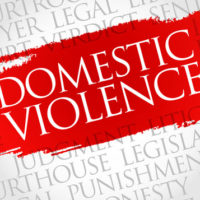 North Carolina is currently considering adopting a new law requiring domestic violence offenders to wear ankle GPS bracelets to track their whereabouts. The House Bill, H.B. 46, is also referred to as Allison’s law because it could, if made into a law, save lives such as Allison Holt, who was killed by her estranged husband back in 2009 two days after she filed a restraining order against him. A staggering 60 percent of violence-caused injuries were inflicted on family members, loved ones, or acquaintances, according to the Bureau of Justice Statistics and reported by Mother Jones. And, 60 percent of those injuries happened at home. Additionally, 79 percent of murders, when the victim-murderer relationship was known, were incidents where the victim was a loved one, friend, or acquaintance of the murderer. By keeping tabs on the violent person, lawmakers hope to curb the deaths and injuries of thousands of North Carolina victims each year.
North Carolina is currently considering adopting a new law requiring domestic violence offenders to wear ankle GPS bracelets to track their whereabouts. The House Bill, H.B. 46, is also referred to as Allison’s law because it could, if made into a law, save lives such as Allison Holt, who was killed by her estranged husband back in 2009 two days after she filed a restraining order against him. A staggering 60 percent of violence-caused injuries were inflicted on family members, loved ones, or acquaintances, according to the Bureau of Justice Statistics and reported by Mother Jones. And, 60 percent of those injuries happened at home. Additionally, 79 percent of murders, when the victim-murderer relationship was known, were incidents where the victim was a loved one, friend, or acquaintance of the murderer. By keeping tabs on the violent person, lawmakers hope to curb the deaths and injuries of thousands of North Carolina victims each year.
About the Ankle Bracelet and the Program
The bill calls for the offenders to wear the GPS device at all times (24 hours a day). If they are found outside of their approved zone, they will be arrested immediately. This is all to provide safety for their potential victims. Last year in North Carolina there were 64 domestic violence homicides, according to North Carolina Coalition Against Domestic Violence and reported by WNCN News. The lawmakers of the bill are currently undecided and are seeking feedback from a future Department of Public Safety pilot program on the following:
- Whether GPS units should be worn only by offenders who violate a domestic violence protective order;
- Whether GPS units should also be worn by violent offenders;
- What constitutes a violent offender;
- How the program should be staffed;
- Type of GPS unit to be used;
- Type of GPS monitoring to be used and whether it will provide real time data;
- If the victim’s location will also be monitored for their safety, and what privacy concerns will arise because of that;
- Cost of the program; and
- Comparison of North Carolina’s program to those of other states.
Recent Successful Results in Close-By States
Several other states have had success, including Connecticut, which began their trial program in two high-risk regions back in 2010. The Connecticut Mirror reported that between 2010 and 2013 they had 168 defendants wearing ankle bracelets. As a result, none of the victims were injured or killed in additional assaults.
What is Domestic Violence?
Domestic violence, when the offender is in a relationship with the victim, is causing bodily injury, the attempt to cause bodily injury, or putting the victim or their family members in fear of injury. Placing the victim or their family members in emotional distress over their safety is also considered domestic violence.
Contact a Charlotte, North Carolina Domestic Violence Attorney Today for Help
If you or a family member is the victim of domestic violence of any kind, we strongly encourage you to contact an attorney immediately. Do not hesitate to call the compassionate attorneys of Powers Landreth PLLC Charlotte today.
Resources:
ncleg.net/Applications/BillLookUp/LoadBillDocument.aspx?SessionCode=2017&DocNum=165&SeqNum=0
motherjones.com/politics/2013/04/domestic-violence-murder-stats
ctmirror.org/2013/09/04/gps-ankle-bracelets-reduce-domestic-violence-injuries-connecticut/
wncn.com/2017/02/17/some-seek-solutions-as-domestic-violence-continues-to-plague-nc/
Learn More
North Carolina Collaborative Divorce
 When most people think of divorce, a complicated, stressful, and costly image comes to mind. While many divorces do end up going down that type of road, especially when the divorce is contested and goes to court, there is an easier option available for couples whose relationship is still strong enough to discuss options face to face in a controlled, neutral environment. This option is called collaborative divorce, and it may be the right choice for you.
When most people think of divorce, a complicated, stressful, and costly image comes to mind. While many divorces do end up going down that type of road, especially when the divorce is contested and goes to court, there is an easier option available for couples whose relationship is still strong enough to discuss options face to face in a controlled, neutral environment. This option is called collaborative divorce, and it may be the right choice for you.
What is Collaborative Divorce?
To settle legal disputes, there are generally three accepted methods. The most recognizable option for many people is going to court (litigation) where a judge will make the decision for you after hearing the arguments of both sides. However, an article in Forbes estimates that 95 percent of divorces are settled outside of court. So how are people going about this? Arbitration, which is somewhat similar to litigation, is another option, which involves both parties entering an agreement to let an arbitrator settle the dispute for them. Both parties present their arguments to the arbitrator and the arbitrator will either make a concrete decision or the decision will be allowed to be appealed. Collaborative divorce is similar to arbitration in that it takes place outside of the courtroom, but neither party is forced into making a decision right then and there, and no third party will make the decision for them either. During a collaborative divorce, both parties come to a single room, or separate rooms, and present their sides to the collaborative divorce attorney. The collaborative divorce attorney takes no sides and has nothing to gain or lose by pressuring either party into a decision.
Why Should I Consider Collaborative Divorce?
There are many good reasons for going with a collaborative divorce over litigation. However, it should be kept in mind that in order for collaborative divorce to work, the communicative relationship between both parties must still be somewhat intact and the wishes that both parties have entering the process should already meet somewhere in the middle.
- Cost: The average collaborative divorce cost $19,723 which is less expensive than a traditional litigated divorce, which comes in at an average of $77,746.
- You control the outcome: The collaborative divorce attorney will help both parties come to an understanding and reach a middle ground in terms of asset and property division, child custody, alimony, and other issues. If a decision is made, legal contracts can be signed there or at a later date to enforce the decisions made equally by both parties. You are in control and can agree to or deny any offers presented by the other side.
Contact an Attorney Today
Whether you decide to go with litigation, arbitration, or collaborative divorce, you will need an experienced attorney at your side throughout. Call the Charlotte law office of Powers Landreth PLLC today.
Resources:
forbes.com/sites/jefflanders/2014/05/22/divorcing-women-is-it-best-to-litigate-or-settle/#3097c9e4618c
nbcnews.com/id/22315262/print/1/displaymode/1098/
Learn More
Custody Over the Family Pet
 Who gets Fido?
Who gets Fido?
You might be surprised what causes hang-ups in separations and divorce. Sometimes even deciding whether to separate involves consideration of factors that may seem unimportant, if not frivolous to some.
The other side of the coin involves assumptions about what’s fair or what the divorce laws in North Carolina say.
If you’re a pet owner, figuring out who gets the dog in a divorce (or cat or any other beloved pet) can turn out to be a big deal. You may have even waited to split up, fearful you’d be separated from an animal that is very much considered a member of the family.
Generally speaking, pets are considered property. They are not subject to ‘best-interests’ considerations like children. And that can cause problems – Bill Powers, Charlotte Divorce Lawyer
You can replace a car, the couch, or a home with another one, but you cannot replace the bond that you have created with your pet with the snap of your fingers or with a quick credit card transaction. For many folks, the family pet is a member of the family.
They’re more than property.
Indeed, given almost 70% of homes in the United States have at least one pet, it’s surprising there aren’t more disputes and protracted litigation in family court about pet custody issues.
Property division can be one of the most hotly contested aspects of divorce. Adding pets into the equation only complicates the matter. That’s one reason why proceed forward in a collaborative law fashion may be helpful.
Unfortunately, unlike child custody, the court treats pets as property. There aren’t “pet custody laws” in North Carolina. There isn’t a consideration of what is in the best interests of the pet.
As property, dogs and cats (pets) are considered as part of Equitable Distribution. That means the Judge goes through and decides:
- What is a marital asset?
- What is separate property?
- What is the property worth?
- What’s fair in splitting up marital assets?
Is a Pet Separate Property or Marital Property?
Because the court views pet animals as property, your dog, fish, cat, or pet snake may fall under the category of marital property or personal property. The division of assets, which necessarily includes real and personal property, is done so through the NC Equitable Distribution laws.
Personal property normally includes anything that either party brought into the marriage, or, more simply, anything that was purchased or acquired before the marriage. That is not an absolute rule.
In fact, there is some legal authority to argue the assumption that individual “separate” property is gifted to the marriage or otherwise becomes marital property over time. There are exceptions. Frankly, it can be a bit complicated.
“Separate Property” may include things like an inheritance or gifts that were given specifically to one or the other spouse.
Pets are Property
According to the Animal Legal Defense Fund, some courts are looking at the bond between the animal and the owner to establish custody or ownership.
Equitable Distribution Affidavit
Proving that the bond between you and your pet is stronger than the bond between your pet and the other owner may be accomplished in court by showing who provided more care, who took the pet to more veterinarian visits, who took the animal on more walks, etc.
Eyewitnesses, such as neighbors and friends, as well as receipts and other documentation, can be utilized for the purpose of proving a strong bond. If you do not wish to put everything in the hands of the court, you and your ex-spouse may wish to work out a sharing schedule or contract between the two of you that specifically outlines who has the pet on specific days, weeks, or months.
Charlotte Equitable Distribution Lawyers
Whether you are seeking ownership of your dog, cat, or guinea pig, the Charlotte divorce attorneys of Powers Law Firm PA understand the importance of the bond that you have with your beloved pet.
Our lawyers are available for legal consultation for separation and divorce matters in Charlotte (Mecklenburg County) and Mooresville (Iredell County).
Legal matters involving separation, divorce, and equitable distribution are subject to a consultation fee. Matters discussed and disclosed to our divorce lawyers as part of legal representation (and consultations) is confidential.
Learn More
Cheating Spouses
 So, you have a cheating spouse. Or maybe you’re the spouse having an affair? What does that mean for a divorce? It can be relevant for quite a few different things.
So, you have a cheating spouse. Or maybe you’re the spouse having an affair? What does that mean for a divorce? It can be relevant for quite a few different things.
First, there are two types of divorce in North Carolina. The first and most common divorce is generally referred to as an absolute divorce. An absolute divorce can be granted one year and a day after the spouses separate. There is “no fault” required for an absolute divorce. Once an absolute divorce is granted, the spouses are no longer legally married. The second type of divorce is called divorce from bed and board. This divorce does require fault, meaning the filing spouse must show injury from the accused spouse’s actions based on an enumerated list in NCGS 50.7 (including adultery). Unlike an absolute divorce, divorce from bed and board does not require a separation period and does not legally end the marriage.
Secondly, adultery can influence child custody. No, the court will not grant sole custody based on adultery alone. Child custody and visitation is determined by the best interest of the child. Some courts will use evidence of cheating in making their decision. Let me be clear, adultery will not terminate a parent’s right to custody, but among other factors, it could help a judge decide on a custody schedule.
Third, alimony. This is where evidence of adultery is most important. If a cheating spouse is requesting alimony, that request must be denied. On the other hand, if the supporting spouse is cheating, the court must award alimony to the dependent spouse. If both spouses have committed adultery, the court can award alimony to the dependent spouse. Evidence of adultery will also play into the judge’s decision regarding the amount and duration of alimony.
Lastly, there are other civil actions, related to cheating, that can be brought by a spouse. These claims are criminal conversation and alienation of affection. Both actions allow a spouse to sue the cheating spouse’s paramour. However, only criminal conversation requires sexual intercourse. Alienation of affection can be used for any loss of affection in your marriage, even if there is not a sexual relationship.
Learn More
What Is Spousal Privilege? | Rules of Evidence NC | Carolina Divorce
 There are two different types of spousal privilege in the North Carolina rules of evidence. These privileges refer to a spouse’s right to refuse to provide certain evidence. The two privileges are commonly referred to as spousal testimony and marital communications.
There are two different types of spousal privilege in the North Carolina rules of evidence. These privileges refer to a spouse’s right to refuse to provide certain evidence. The two privileges are commonly referred to as spousal testimony and marital communications.
The first type of privilege is referred to as spousal testimony. The spousal testimony privilege only operates to protect the witness-spouse in criminal cases. This means that only the witness-spouse can invoke the privilege not to testify against defendant-spouse. On the other hand, the witness-spouse can choose to waive his/her privilege and testify against his/her spouse. This privilege applies while the couple is married and ends with a couple’s divorce. NCGS 8-57 lays out specific circumstances where the spouse may be compelled to testify, but those exceptions are extremely limited (ex. prosecution for bigamy, prosecution for abandonment or child support).
The other type of privilege is commonly called marital communications. This privilege applies to all cases, criminal and civil, and protects both spouses during and after the marriage. What does that mean? Any confidential communication made during a marriage is safeguarded by the privilege. However, the communication must be made in private with the expectation of remaining private. The privilege applies to the communication even after the marriage ends. Furthermore, both spouses have the right to refuse disclosure of the communication meaning one spouse cannot waive and disclose the marital communication while the other spouse invokes the privilege. The marital communication privilege also protects certain conduct as confidential martial communication.
When it comes to divorce, the lines are blurred a bit. While divorce proceedings are not mentioned in the statute’s list of exceptions, certain communications will be admitted. For example, if the communication is made in an attempt to humiliate the other spouse, it will often be admitted.
For advice regarding your rights and privileges, contact Charlotte Family Law firm Powers Landreth PLLC at 704-342-4357.
Learn More
The Relationship Between Animal Abuse and Domestic Violence
 In recent North Carolina news, a dog named Huey was brutally killed by one of his owners, a veteran with PTSD and the veteran’s boyfriend, who is currently on active duty in the military, according to The Fayetteville Observer. The couple shot the family dog 10 times, which they filmed each other doing. A friend later posted the video to Facebook, hoping that the two would face criminal charges for their actions. The dog was the emotional support animal of the woman who shot him, Marinna Rollins. The dog’s other owner, who was temporarily letting Rollins take care of the dog, is Rollins’ former husband, who asked that his and his estranged wife’s last names not be used out of fear of death threats from enraged social media users. Rollins and her boyfriend, who took part in the shooting, are out of jail on $25,000 bail. But what does this tragic story have to do with domestic violence? According to the Human Society of the United States, there is a strong correlation between domestic violence, or any violence against another human, and animal cruelty. A study by the Chicago Police Department found that 65 percent of those arrested for animal abuse crimes had also been arrested for battery of a human. When animal cruelty happens at home, the next victim could likely be the perpetrator’s partner, children, or other household relatives. Often, the abuse happens simultaneously.
In recent North Carolina news, a dog named Huey was brutally killed by one of his owners, a veteran with PTSD and the veteran’s boyfriend, who is currently on active duty in the military, according to The Fayetteville Observer. The couple shot the family dog 10 times, which they filmed each other doing. A friend later posted the video to Facebook, hoping that the two would face criminal charges for their actions. The dog was the emotional support animal of the woman who shot him, Marinna Rollins. The dog’s other owner, who was temporarily letting Rollins take care of the dog, is Rollins’ former husband, who asked that his and his estranged wife’s last names not be used out of fear of death threats from enraged social media users. Rollins and her boyfriend, who took part in the shooting, are out of jail on $25,000 bail. But what does this tragic story have to do with domestic violence? According to the Human Society of the United States, there is a strong correlation between domestic violence, or any violence against another human, and animal cruelty. A study by the Chicago Police Department found that 65 percent of those arrested for animal abuse crimes had also been arrested for battery of a human. When animal cruelty happens at home, the next victim could likely be the perpetrator’s partner, children, or other household relatives. Often, the abuse happens simultaneously.
Researching the Link Between Animal Abuse and Domestic Violence
A “gold standard” study confirmed that pet abuse is one of four predictors of domestic violence. Additionally, the abuser may use pet abuse or threat of pet abuse to control their victim partner or spouse. A study found that in 71 to 83 percent of cases where women used domestic violence shelters, the abuser had also killed or abused the family pet. Likewise, another study found that in 88 percent of child abuse situations, the family pet was also abused. Evidence that abuse is happening in your home may stem from pet abuse or animal cruelty convictions of the abuser, because chances are that if you are a victim of domestic violence, your dog or cat most likely is too.
Bill to Establish National Pet Abuse Policy
The Pet and Women Safety Act (PAWS) is designed to expand domestic violence protection laws to pets and to create a federal grant program for safe shelters. Bill S.322/H.R.909, if it becomes law, would also make it easier and more realistic for victims of domestic violence to flee from their dangerous situation and not have to leave their abused pet behind.
For Immediate Help, Contact a Charlotte Attorney Today
Whether you, your pet, or your child has been physically abused by your partner, you need to take action at once. Call the authorities and an experienced Charlotte, North Carolina domestic violence attorney today. The lawyers at Powers Landreth PLLC have vast trial experience and will work tirelessly to win your case and see that justice is served. Call us at 704-342-4357 today.
Resources:
fayobserver.com/news/20170502/protest-planned-for-accused-dog-killers-next-court-appearance
secure.humanesociety.org/site/Advocacy?cmd=display&page=UserAction&id=7322
Learn More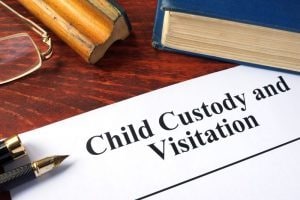
Custody and Visitation Rights of Non-Parents
 According to PBS, 2.7 million grandparents are currently raising their grandchildren. Non-parents, such as grandparents, uncles, aunts, siblings, or other relatives, may wish to become a larger part of a child’s life after their parents go through divorce, a parent leaves, dies, goes to prison, becomes abusive, can no longer properly care for the child, or disappears. Grandparents and other third-party relatives, as well as non-relatives, are sometimes granted joint or even sole custody of children. However, this is usually somewhat rare and can be difficult to accomplish if you are up against the child’s biological parents or parents.
According to PBS, 2.7 million grandparents are currently raising their grandchildren. Non-parents, such as grandparents, uncles, aunts, siblings, or other relatives, may wish to become a larger part of a child’s life after their parents go through divorce, a parent leaves, dies, goes to prison, becomes abusive, can no longer properly care for the child, or disappears. Grandparents and other third-party relatives, as well as non-relatives, are sometimes granted joint or even sole custody of children. However, this is usually somewhat rare and can be difficult to accomplish if you are up against the child’s biological parents or parents.
In the Best Interest of the Child
As with all child custody decisions, the court will always choose in favor of the child’s best interests. However, the court is often biased with its decision-making, usually believing that, by default, the child’s biological parent or parents are the best choice for custody. Yet, a grandparent or other relative may be awarded visitation or custody rights in some circumstances in which that non-parent has a substantial relationship with the child. According to North Carolina code of laws § 50-13.2, a grandparent is defined as “a biological grandparent of a child adopted by a stepparent or a relative of the child where a substantial relationship exists between the grandparent and the child.” There is obviously quite a bit of wiggle room in determining what a substantial relationship is with such an ambiguous definition, which is why it is vital to work with an experienced and highly competent attorney.
Deciding Factors
When determining which party has the child’s best interests at heart and is most likely capable and probable of carrying out those interests, the following factors are looked at by the court:
- Ability to financially provide for the child;
- Relationship between the child and guardian;
- Guardian’s ability to provide love, affection, and attention;
- Proximity of schools and guardians’ ability to provide quality education
- Ability to provide child care;
- Stability of guardian;
- Possible blindness of the guardian;
- Physical and psychological fitness of guardian;
- Moral aptitude of guardian; and
- Past or future military deployment of the guardian.
Possible inexcusable factors, in the mind of the court, to allow custody to a biological parent over that of a grandparent or other close adult include the biological parent’s history or evidence of:
- Domestic violence;
- Sexual abuse or physical abuse;
- Illegal drug use;
- Alcoholism;
- Felony history;
Call a North Carolina Attorney Today
If you are a grandparent of the child, or another family member or non-family member, and you wish to have legal visitation rights or sole custody, it is important to discuss your options with an experienced Charlotte, North Carolina family law attorney. Call Powers Landreth PLLC at 704-342-4357 today.
Learn More
Child Custody: What Can the Judge Order?
Child custody can be determined one of two ways. The first way is through a separation agreement. This means the parties agree on an arrangement in a signed, written document. The second option is by a court order. If the parties cannot come to an agreement, the judge will decide the terms of child custody. The parties will put on evidence to show the judge who should have custody, when and why.
Once the judge has determined, based on the best interest of the child, where the child should live, the judge must then decide the details. What details? ALL OF THEM. The judge doesn’t simply write that the child should live with parent A, instead, the judge includes visitation schedules, telephone contact, holidays, summer schedules, drop off times and locations, etc.
When thinking about child custody, you must think about the details. The more details, the better the agreement/order. While details concerning drop off times and locations or phone schedules can seem excessive, it will only make things easier between the parties later. Agreeing on, or having the judge order, a phone schedule and limits to such phone contact can increase cooperation between parents and limit disputes over the matter.
If you have any questions about child custody, contact our attorneys are Powers Landreth PLLC (980) 237-4579.
Learn More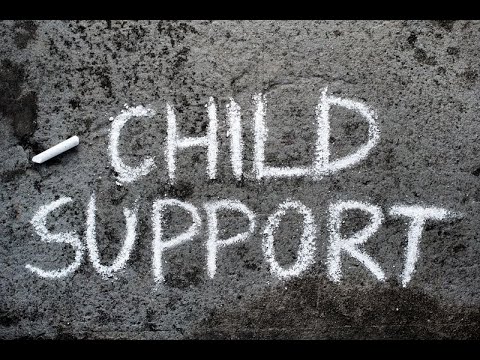
North Carolina Child Support Enforcement
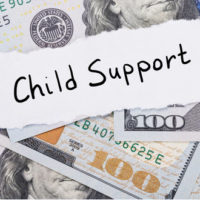 Child support is a legally mandated form of financial support issued by the court in North Carolina. This means that when a father or mother fails to pay the support that they owe, there are legal steps to take in order to procure the payments. By working closely with the Child Support Enforcement Office of North Carolina and a trusted family law attorney, you can hold the noncustodial parent accountable for their support obligation.
Child support is a legally mandated form of financial support issued by the court in North Carolina. This means that when a father or mother fails to pay the support that they owe, there are legal steps to take in order to procure the payments. By working closely with the Child Support Enforcement Office of North Carolina and a trusted family law attorney, you can hold the noncustodial parent accountable for their support obligation.
Many Options for Child Support Enforcement in Charlotte
Court ordered child support is enforced the Child Support Enforcement Office and the Support Enforcement Program of North Carolina. There are a variety of actions to take if the noncustodial parent continues to make late payments, partial payments, or refuses to pay child support altogether. The most effective method, according to North Carolina Health and Human Services, is income withholding. Income withholding goes directly after the noncustodial parent’s paycheck, from which the employer deducts a specific amount, specified by the NC Child Support Centralized Collections (NCCSCC). This option is viable even if the noncustodial parent is living out of state. Additionally, income withholding can be deducted from the following sources of income:
- Veteran’s disability benefits;
- Workers’ compensation;
- Social Security benefits; and
- Unemployment insurance benefits.
Additional options include going after the noncustodial parent’s federal and state tax refunds, claims on real or personal property, credit bureau reporting, monthly billing, or issuing a court action against the noncustodial parent, which will essentially force them to show up in court and answer to a judge directly, or else face serious penalties.
Issuing a Subpoena, Court Hearing, and Being Held in Contempt of Court
Under North Carolina law, the state of North Carolina may issue a subpoena for certain information to be provided by a noncustodial parent that may be responsible for paying child support. This information includes any “books, papers, correspondence, memoranda, agreements, or other information, documents, or records” that are relevant to:
- Child support establishment;
- Child support enforcement; and
- Paternity establishment.
Refusing to comply with a subpoena or a court order is contempt of court and can result in jail time and/or heavy fines. Additionally, you may request a court hearing. If the noncustodial parent refuses to show, or after the hearing the judge upholds the current court-ordered child support, and the noncustodial parent refuses to obey, they may be held in contempt of court. Their driver’s license may be taken away, they may be issued fines, or they may be sent to jail.
If You Are Being Denied Child Support Payments, Contact an Attorney Today
Child support is an essential tool for raising your child or children as comfortably and safely as possible as a single parent. You should not be left alone to pay for medical care, food, clothing, shelter, child care, and all the other essentials when there is another parent out there who has a legal responsibility to provide for their children. For help with child support enforcement, you need to enlist the assistance of an experienced family law attorney. Call the Charlotte, North Carolina attorneys of Powers Landreth PLLC today at 704-342-4357 for serious legal assistance.
Resources:
ncdhhs.gov/divisions/social-services/child-support-enforcement
ncleg.net/EnactedLegislation/Statutes/HTML/ByArticle/Chapter_110/Article_9.html
Learn More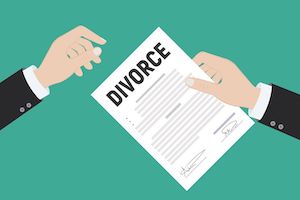
Marital Misconduct
What is it?
Marital misconduct is defined in NCGS 50-16.1A(3). The statute plainly lists the behavior considered marital misconduct. It includes cheating on your spouse, excessing spending, and alcohol or drug abuse.
When?
This misconduct must happen during the marriage. Any misconduct that happens after the couple separates is not considered marital misconduct. While misconduct occurring after the date of separation typically cannot be presented to the court, it can be used to corroborate wrongdoing during the marriage. For example, if one spouse cheats on the other spouse, but there is not strong evidence of the affair, evidence of the post separation relationship can be presented to the court to validate the affair.
Why is this any of the court’s business?
In awarding alimony, the Court considers any, and all, evidence relating to marital misconduct. Based on the evidence presented to the court, the Judge decides the duration and payment of alimony.
What if my ex is a bad person?
Family court does not penalize parties simply for being bad people. The court cannot award support or custody due to your ex being not being agreeable. However, there are other mechanisms available to the court, such as a contempt of court proceeding to enforce court orders.
Learn More